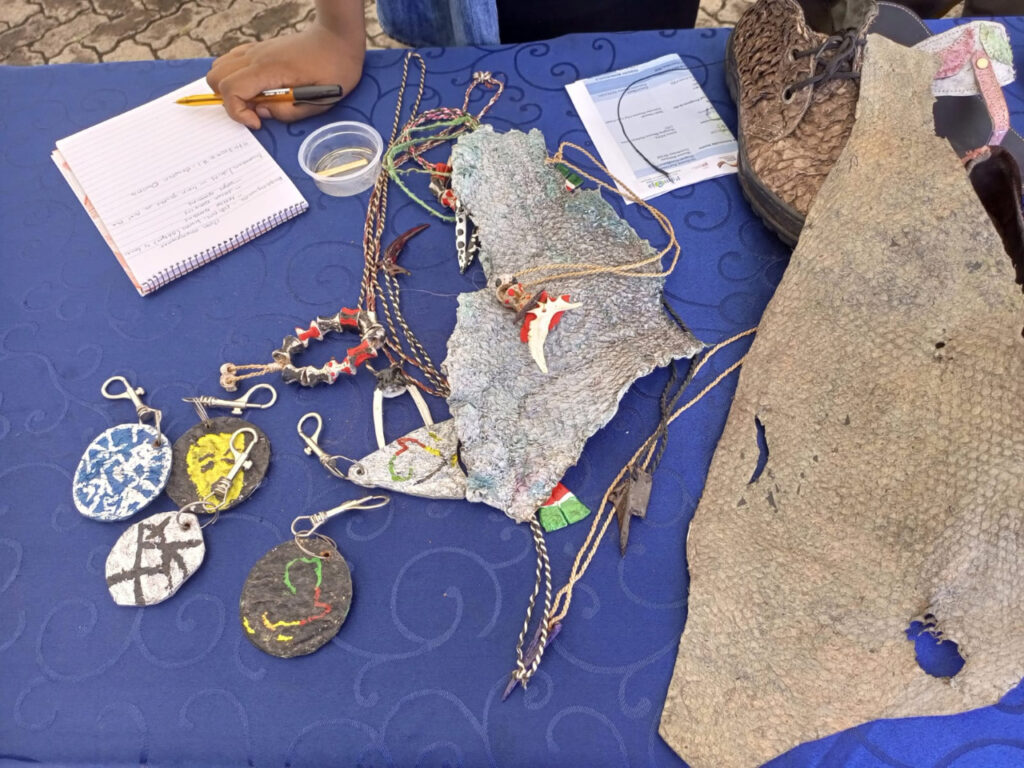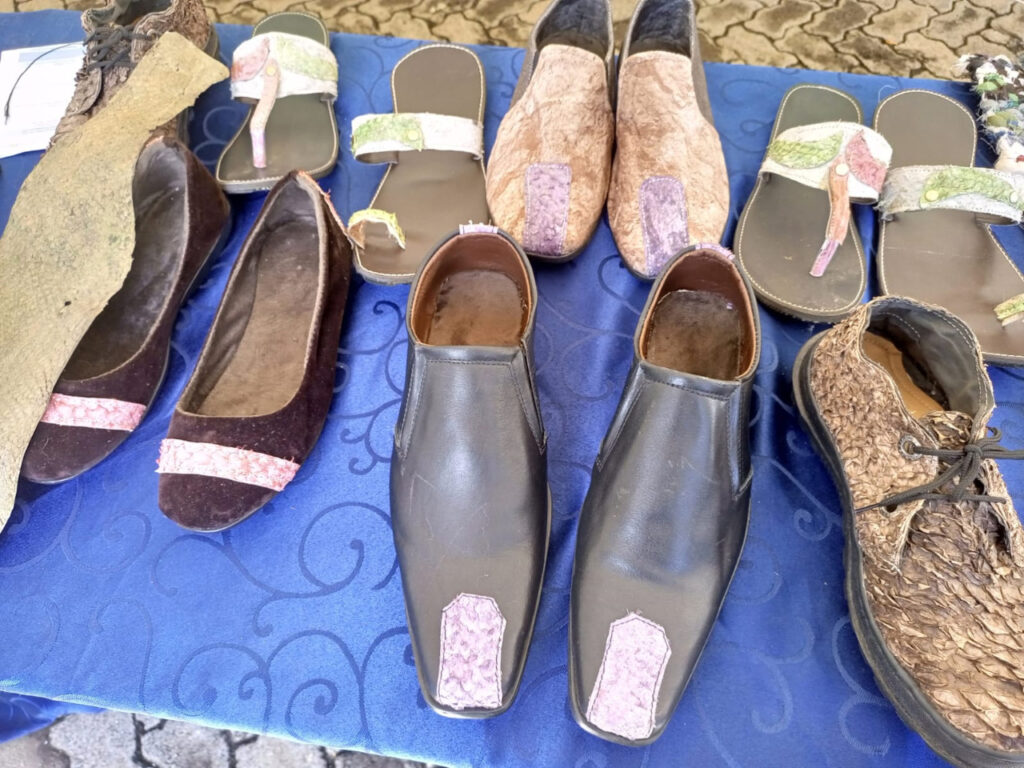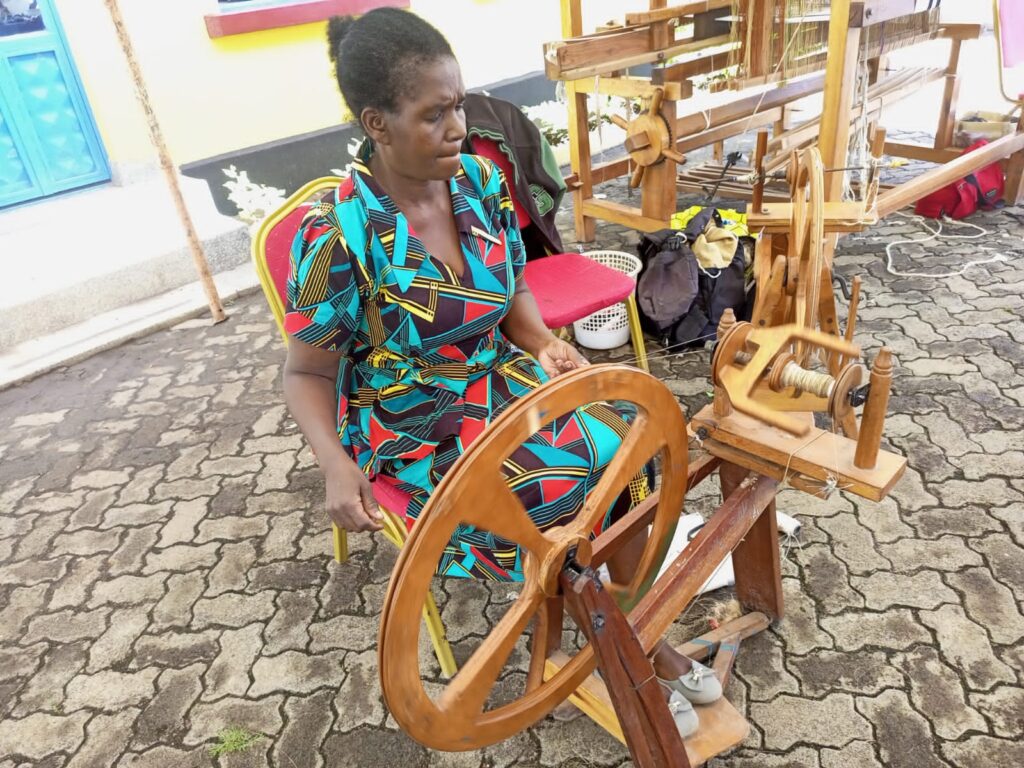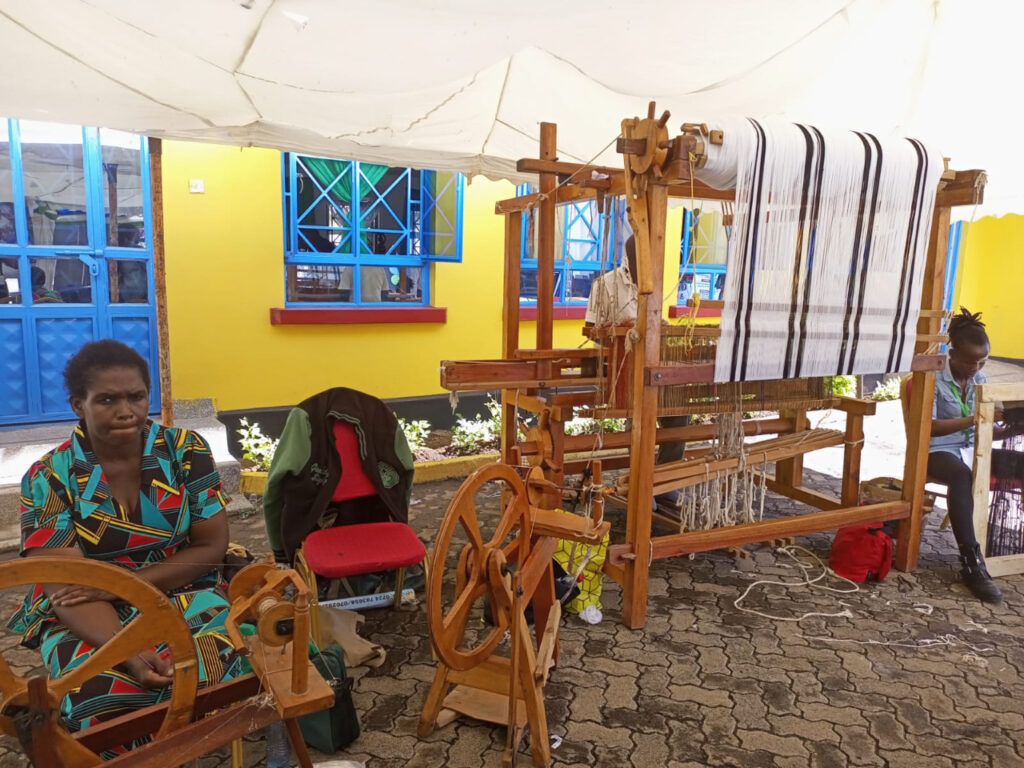Twenty years ago, strong foul stench emanating from heaps of waste was the order of the day near fish processing factories in Kisumu.
Huge sized house flies hoovered around to scavenge for the delicacy with some wild birds; then came Newton Owino.
From the heaps, Owino discovered a lifeline, and today, the heaps are no more.
Owino, who hails from Siaya County, has lived in Kisumu for over 30 years.
But 16 years ago, he ventured into the business of recycling fish skin wastes.
I am doing what is relevant to my region in the climate change fight, this was the best choice I made
Newton Owino
Annually, Kisumu produces about 150, 000 metric tonnes of fish fillets.
When processing the fillets, the fish skin is peeled off.
Previously, such skin would be dumped in adjacent dumping sites, attracting scavenging birds, and houseflies.
The decomposed skin would then produce a strong stench, polluting air for those living and working around the fish processing factories.

When it rains, the components of the waste would be swept back into Lake Victoria, causing pollution of the lake.
Lake Victoria pollution
The National Environmental Management Authority (NEMA) classifies pollution from human activities as one of the biggest challenges facing the Lake Victoria ecosystem.
Tom Togo, NEMA’s Kisumu County Director of Environment, says Lake Victoria is facing pollution emanating from as far as 50 kilometres away.
According to Mr Togo, pollution from industrial and agricultural activities lead to pollution of the lake at 40 percent, followed by pollution from domestic waste at 30 percent.
“The sewer coverage in Kisumu town is as low as below 20 percent. This means a lot of liquid waste which is not managed finds its way into the lake,” he said.
Recent death of fish reported in the lake was attributed to pollution and impacts of climate change.
Owino is an industrial chemist graduate with specialization in leather chemistry.
And 16 years ago, he began his leather product manufacturing factory, mostly dealing in hides.
But with barely five tanneries (slaughter houses), the supply of raw material was low.
“We could not get enough skin or hide to run a tannery,” he said.
We could develop a small industry based on local natural resources that we have, to help mitigate climate change effects and also provide employment
Newton Owino
He then ventured into fish skin, which he said was an untapped potential.
And he used one stone to kill two birds.
Owino proprieted Alisam Product Development and Design Enterprise to deal in fish leather tanning, silkworm rearing and algae fibre production.
“On one end I had readily available raw material for my factory, and on the other hand I contributed to environmental conservation through collection of the fish skin wastes,” he said.
He added: “I anchored my innovation on what we call the four health; human, animal, environmental and plant health.”
And true to his dreams, the project has provided employment opportunities to residents of the area.
“We could develop a small industry based on local natural resources that we have, to help mitigate climate change effects and also provide employment,” he narrates.
At Alisam, Owino and his team assemble these waste, take it to the tannery and subject it to tanning operation, where it involves removal of meats and scales.
“We do this in partnership with women living near filleting industries in Obunga slum,” notes
the innovator.
The scale is used to produce collagen, which is one of the useful materials from fish used as shoe cement or glue.
The collagen is then subjected to wheel tanning to obtain fish leather.
Owino furthers: “We use the leather products to make shoes, sandals, belts and jackets.”

Before the bones can decompose, they are cleaned and used to make necklaces and bracelets.
“We make sure each and every remain, type of bone and fish waste has a use including the fin bone and neckbone.”
Owino has also contracted fish sellers from Dunga to supply these wastes.
We are concerned about end-life of these products and more often reuse them to elongate their life cycle and reduce the chances of them being lake pollutants
Newton Owino
Silk worms
The initiative which started way back in 2006 also rears commercial silk worms.
Silkworm lasts for only 26 days, from the developmental stage to the fifth instar when they spin the cocoon.
Owino says after the insect has removed silk filament from its abdomen, it makes a house with it where it stays for three days.
“It then camouflages inside, that is what is called a pupa, from there if we want to have more of it, we let it merge into an adult, that is a moth and pair them together to lay eggs,” he explains.
The eggs are incubated for seven to 10 days then they hatch again into larvae.
For male adults, their lifespan is 6-7 days.
In Kajulu, banana fibres are easily available and therefore we also develop threads from them to make materials
Owino
Owino goes ahead: “From the cocoon house we then boil it and break it into wool, a chain of filament then dried to produce silk wool.”
It is then taken to the spinning wheel to form a silk thread which is passed to the loom to produce materials of either long or short kikois.
The materials in the loom are dyed with some available plant compounds like onion peels, avocado peels to obtain different colours.
Being that kitchen refuse is another major pollutant, Owino says they have innovated new ways to recycle them.
“In Kajulu, banana fibres are easily available and therefore we also develop threads from them to make materials,” he explains.

The enterprise uses locally made wood spinning wheels, specifically made to produce threads from silk wool and banana fibre leaves.
“Once you’ve obtained the thread from there, it is transferred to the hand weaving loom where he final product/material is going to come out.”
According to Owino, synthetic materials from salons and barber shops are often dumped and end up down to the lake.
“We collect the waste from tailors and dressmakers to produce doormats as a way of recycling them into use in our quest to mitigate climate change,” he adds.
He adds: “We are concerned about end-life of these products and more often reuse them to elongate their life cycle and reduce the chances of them being lake pollutants.”
Under his leadership, the institution has partnered with salonists and barber shops in Kajulu, Obunga, Kondele, Nyalenda and town areas for collection of these materials.
Market
At the start of the business, Owino said that they targeted the global market, which includes the East African region.
“We started by exports, but by good luck, we now have a local market which is of use to the people I have trained.”

Owino said he comes up with an innovation based on the market demand, identifies the needs then bridges in to meet them.
“I develop products based on the gap in the market so often we have a ready market,” he explains.
The business has made an impact in the society as Owino currently employs 300 young women who do the pre-tanning operations.
These women are trained and registered separately to produce fish shells which they then sell to Alisam.
The enterprise also does community support through corporate responsibility where they employ economically vulnerable youths to work for them and then pay their school fees.
The business has employed 17 youths working in different areas in the innovations and productions.
Owino defines best employment as one that would impact on the lives of the needy people.
“I am doing what is relevant to my region in the climate change fight, this was the best choice I made.”
To make sure these innovations do not just help the youths financially, they also offer training to enable others to acquire these skills.
Under the support from Pamoja for Transformation, they have partnered to generate income, help the youths create jobs and engage the youths thereby ensuring environmental and economic peace.
